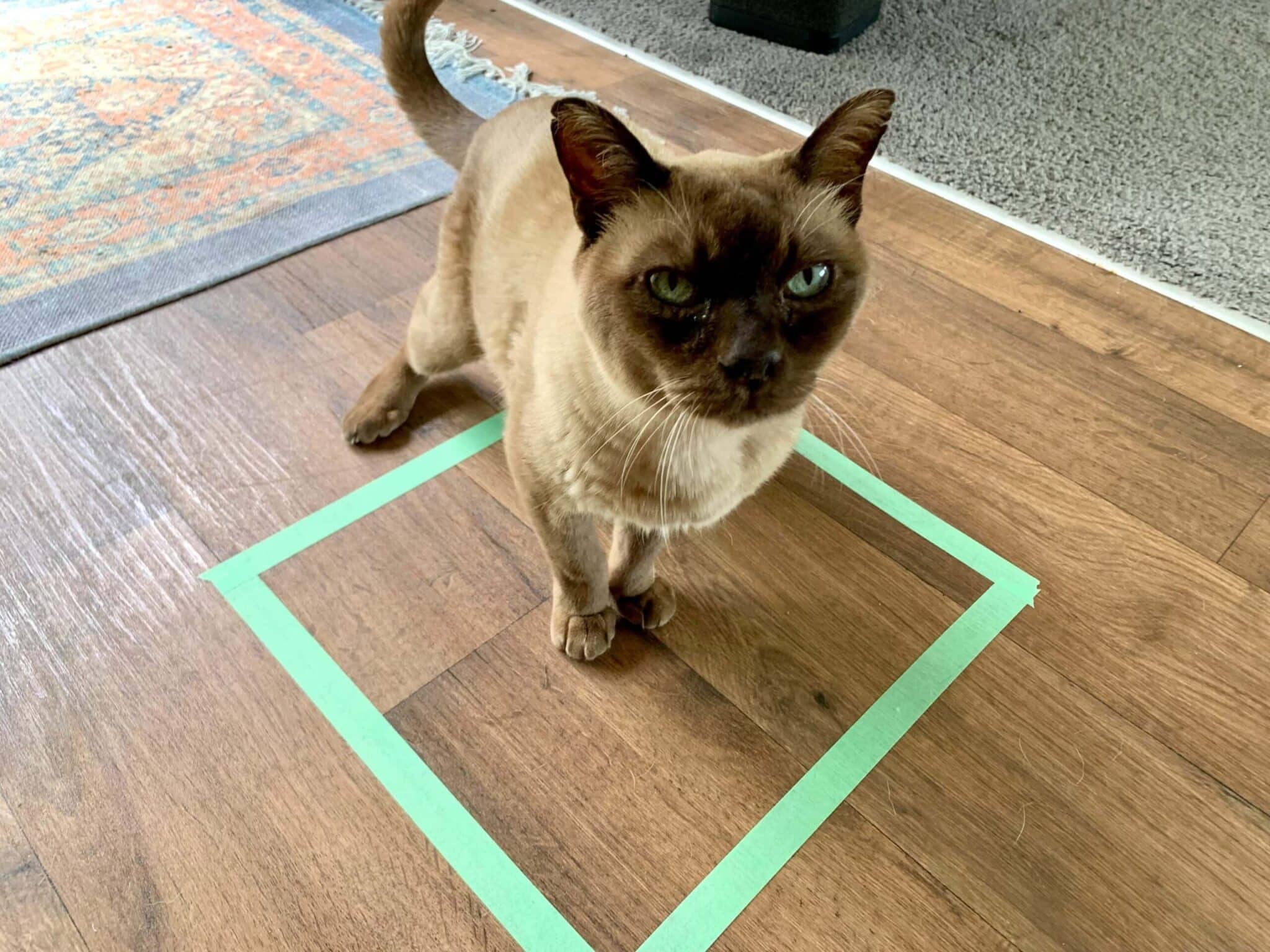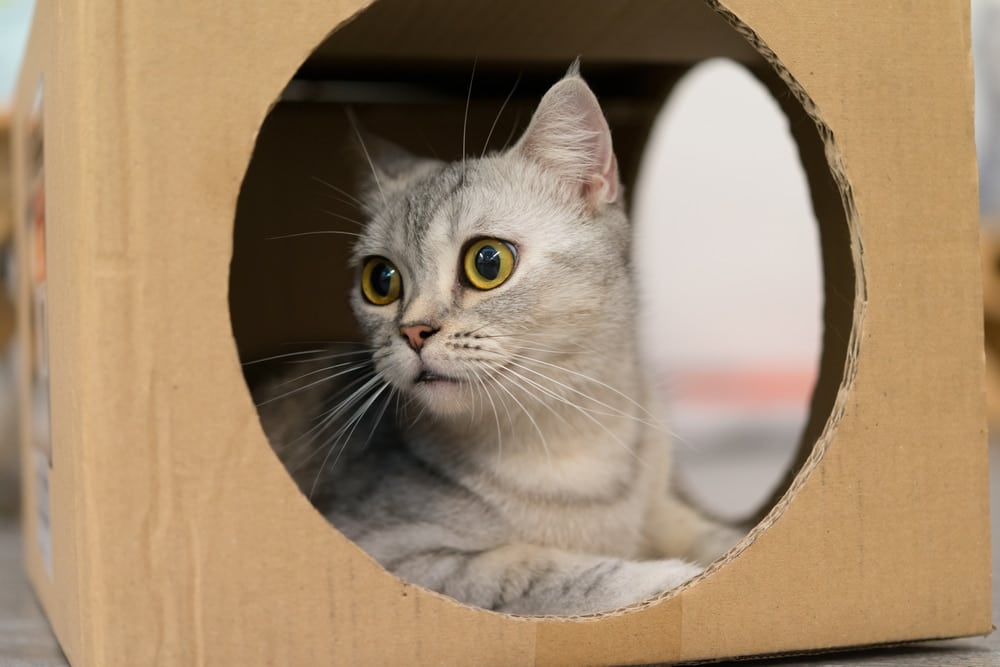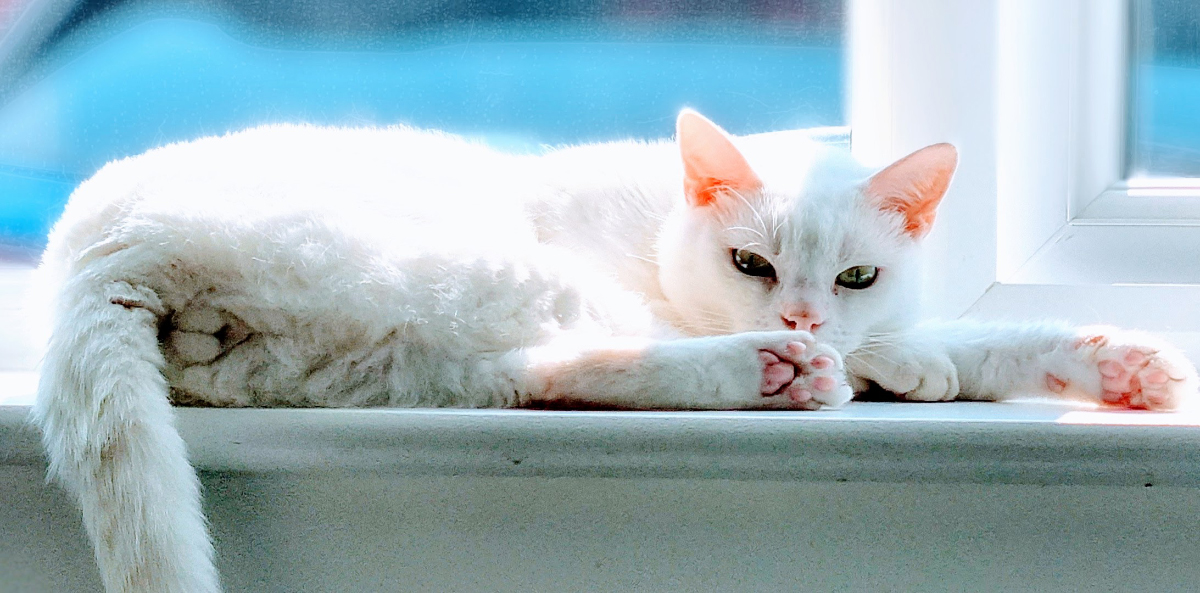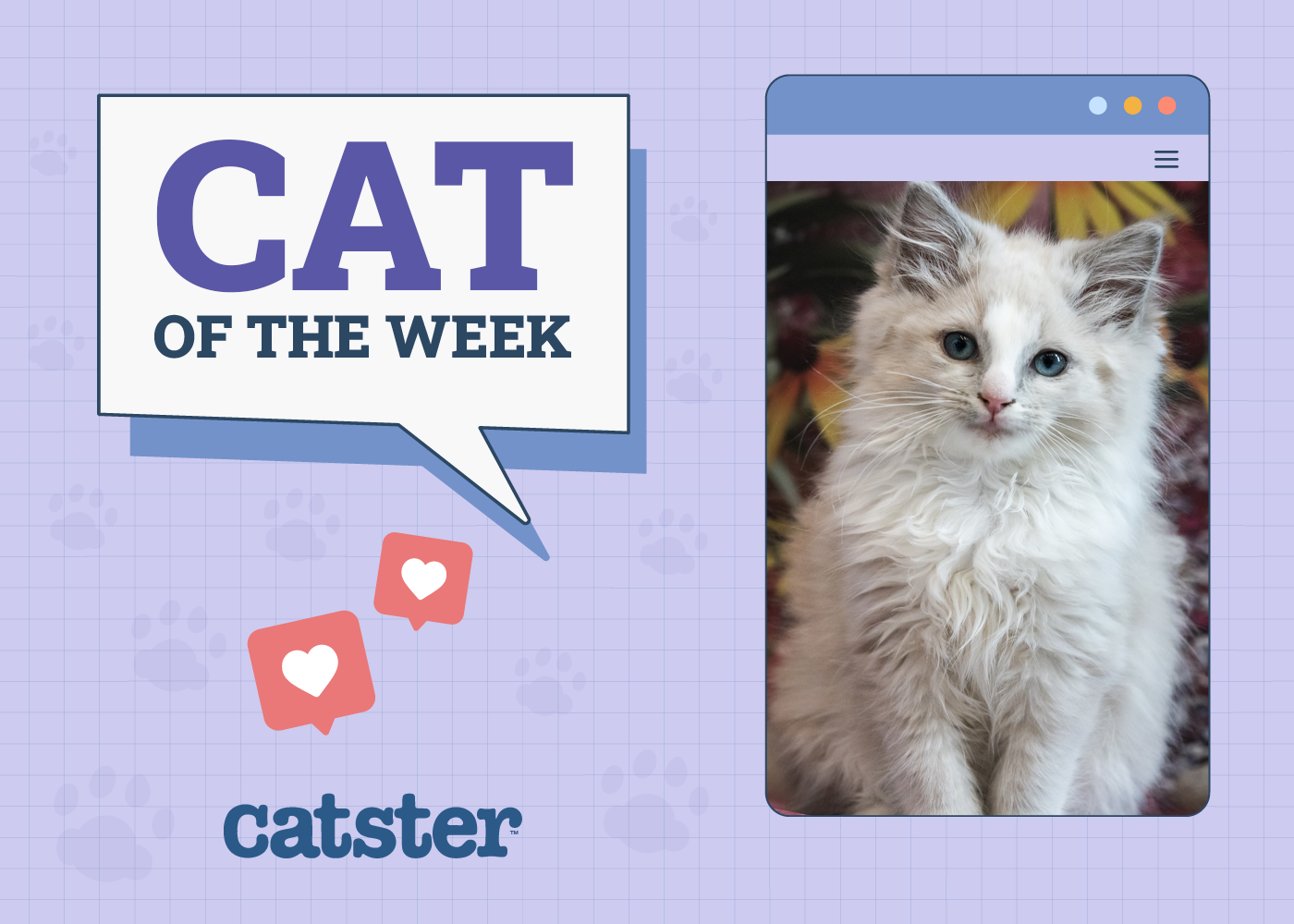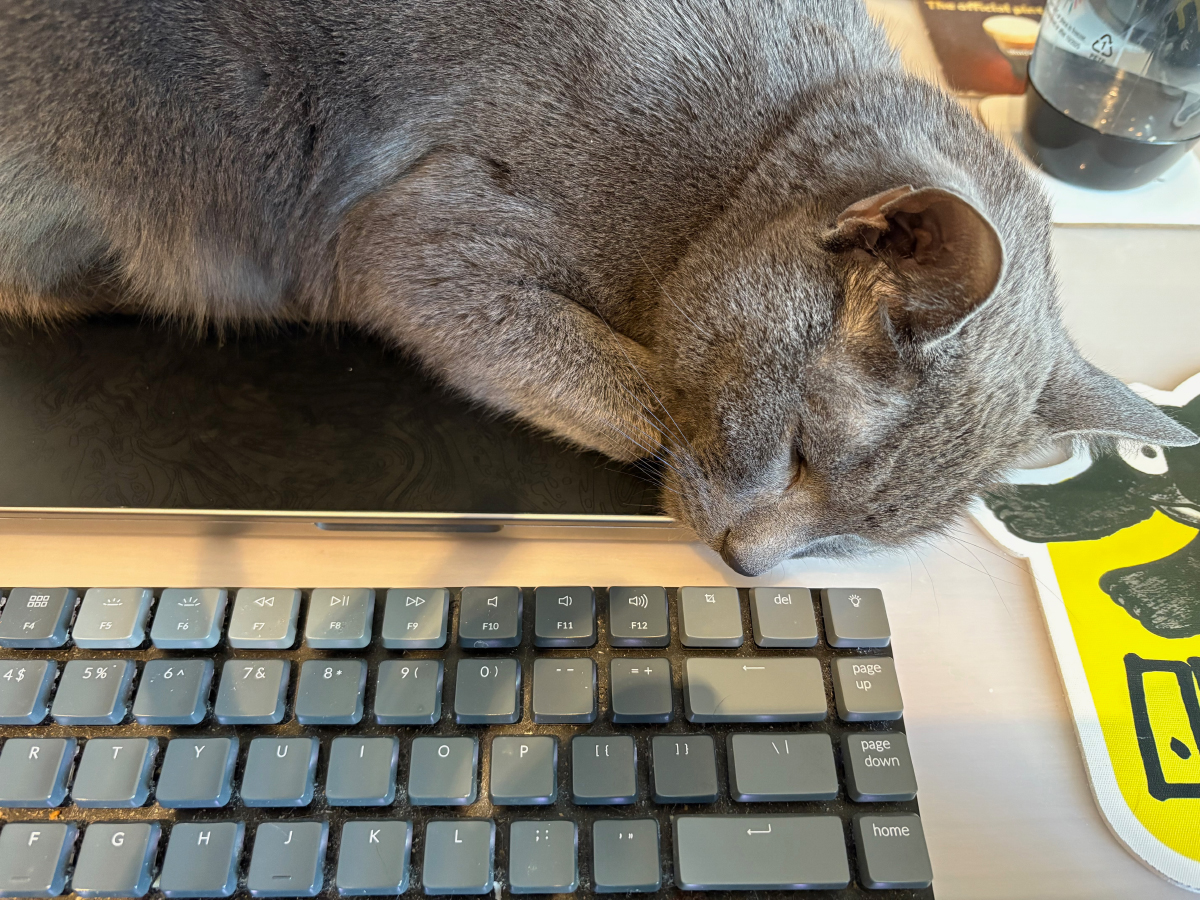Cats stalk their prey, stalk their toys, and sometimes even stalk their food. However, what concerns many cat owners is when their cats decide to stalk them.
You’re probably familiar with the behavior of cat stalking and pouncing. They slowly creep down the hallway and then pounce when their prey is cornered. It’s adorable and sometimes funny until that prey is you. So, why is your cat suddenly stalking you? It is likely that your cat is only looking to play. Is this normal behavior for a cat? Should you be afraid? We’ll answer these questions and much more below.

Is It Normal for My Cat to Stalk Me?
Your cat usually stalks you because they want to play. If you respond to his game, it can be fun for both of you. If you don’t like your cat stalking and grabbing you when you pass by, ignore it, and they should stop this behavior on their own.
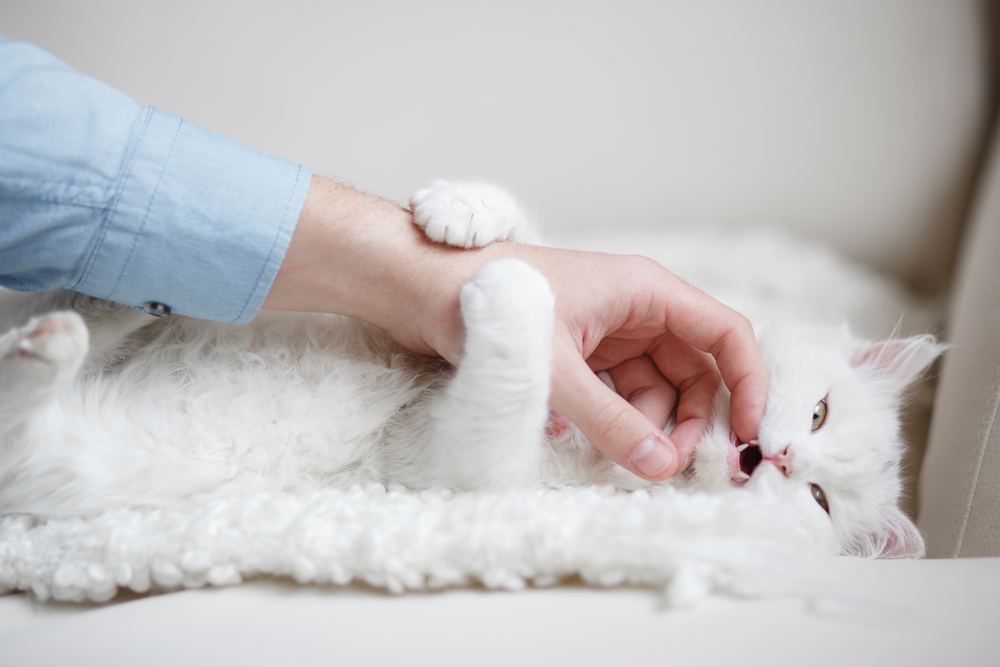
Why Do Cats Stalk?
There are quite a few reasons that cats stalk, including that when they live in the wild, that is how they catch their prey. However, you might think your cat’s food is served regularly, and there’s no reason for them to stalk and pounce on their food.
1. It Comes Natural
While domestic cats don’t need to stalk and pounce on their food to eat, it’s what comes naturally to them. Cats are natural hunters, and although indoor felines do not need to stalk their pet food, they may stalk their owners because the instinct to do so is still present.
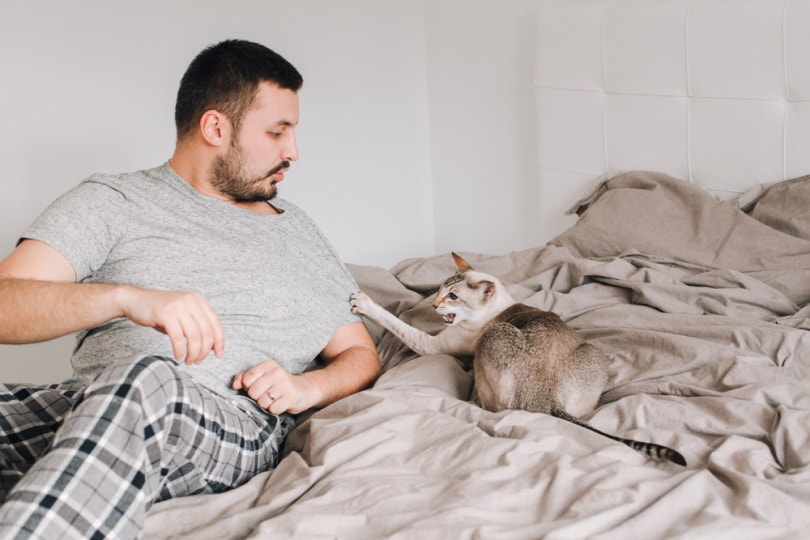
2. Stalking Is Fun for Your Cat
One possible reason that your cat is stalking you is that they want to play. Stalking and pouncing are fun for your feline, so he probably thinks it will also be fun for you. For example, if you find your cat hiding under the couch, and he pounces on you when you walk by, he is inviting you to play with him.
The cat may also lightly bite or claw you, but not enough to hurt. However, there is a thing called play aggression in cats, which means the cat might sink its claws into your leg or bite and kick you hard. However, this doesn’t mean that the feline is trying to hurt you. This is normal for cats, and they are just playing, not trying to cause harm.
3. Your Cat Is Agitated or Anxious
Cats often stalk and pounce when anxious or agitated about something. If you’ve recently moved to a new home or added a new pet, your cat may be stressed and start aggressively stalking and pouncing.
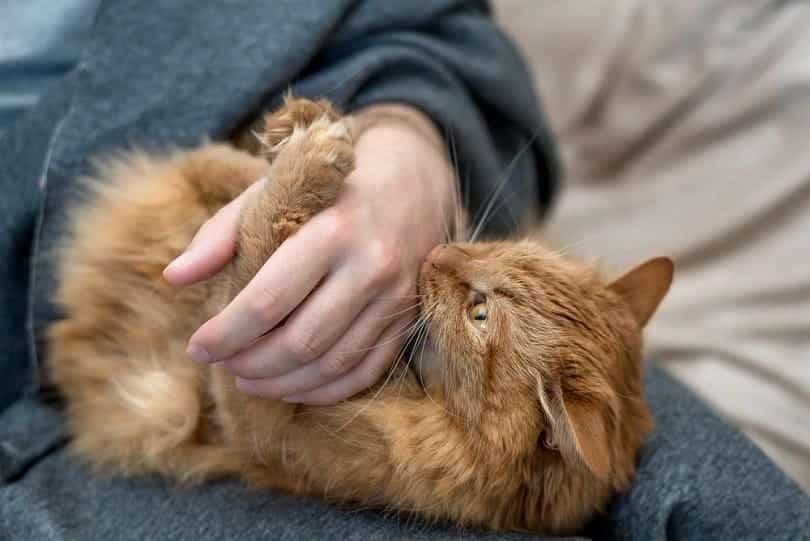
4. Your Cat Is Bored
Cats get bored, just as people do. If your cat isn’t getting the physical and mental stimulation it needs, he may become bored and start stalking you to entertain himself. Make sure your cat is happy and gets plenty of physical and mental exercise to reduce the stalking.

What Can You Do to Curb This Behavior?
Even when a cat is stalking you out of frustration or boredom, there’s very little chance that the cat will harm you. However, if your cat’s stalking and pouncing behavior has gotten to where you can’t even walk into your own house or down the hall without the cat attacking, it’s time to get help for your cat.
Even if the cat’s attack draws blood, you should never punish your cat, as that will only worsen the behavior. You can try to redirect your cat’s attention with a toy or game when you notice the stalking, and you can start routine play sessions to prevent boredom and aggressive behavior.
However, if the behavior continues or worsens, it’s best to make an appointment with your vet for recommendations. They might refer you to a behavioral specialist if the stalking problem is severe.
If you need to speak with a vet but can't get to one, head over to PangoVet. It's an online service where you can talk to a vet online and get the advice you need for your pet — all at an affordable price!

Wrap Up
Cats are curious, playful creatures whose instinct is to stalk and pounce on their prey. Just because your cat is stalking you doesn’t mean that the cat sees you as food. Cats stalk for various reasons, whether it is because of boredom, frustration, or wanting to play with their pet parents. You can encourage your pet to stop the behavior by engaging in fun games more often, but if the stalking continues, contact your vet for assistance.
Featured Image Credit: Anna Kraynova, Shutterstock



